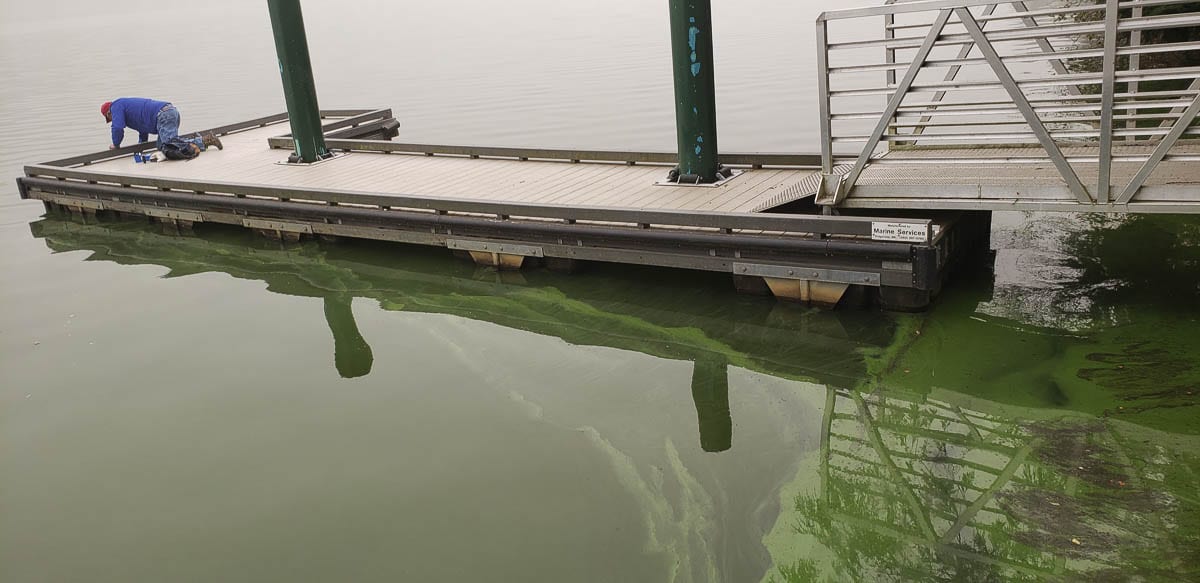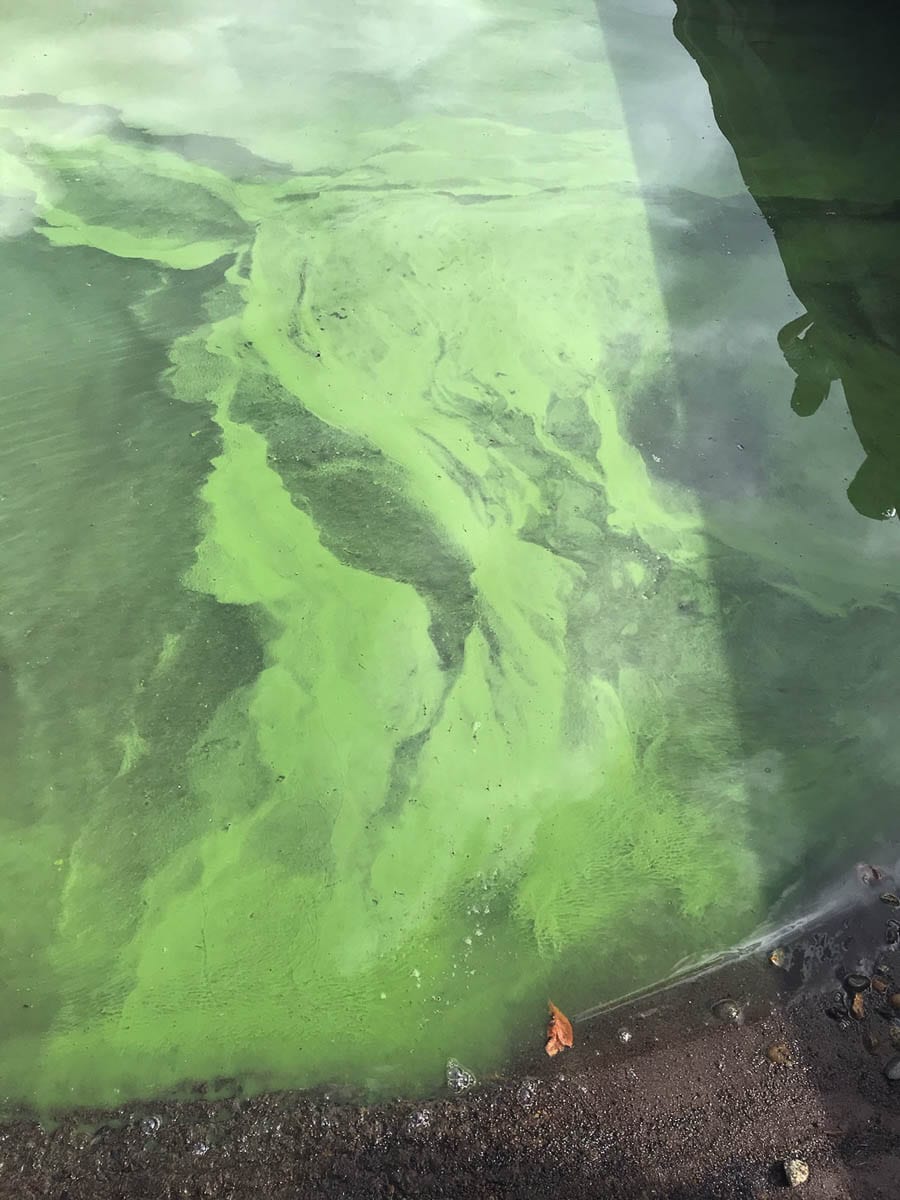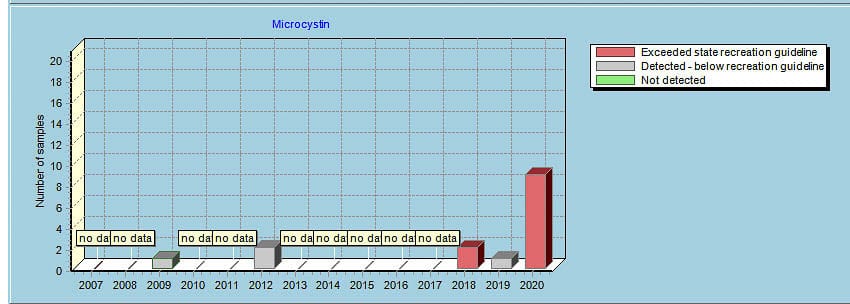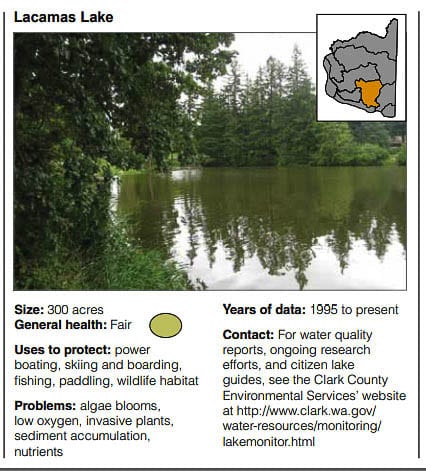Public Health has also upgraded the advisory at Vancouver Lake to ‘warning’
The Clark County Public Health Department issued a “danger” warning for water quality at Lacamas Lake. They also issued a “warning” for Vancouver Lake water. Lacamas Lake water has exceeded state water quality standards nearly a dozen times this summer.

Clark County Public Health has issued a danger advisory for Lacamas Lake after test results revealed elevated levels of cyanotoxins in the water.
Results from water samples taken Monday from Lacamas Lake at the Heritage Park boat launch revealed cyanotoxins above the threshold levels recommended by the Washington Department of Health. Danger signs are being posted at the boat launch, entry to Heritage Trail and other public access points to the lake. Public Health officials are advising against all recreation in the lake, including swimming, kayaking, paddle boarding, canoeing, water skiing, and fishing.


Blooms of cyanobacteria, also known as blue-green algae, are currently not visible from the water’s surface, however, toxins are still present.
“We’re concerned people may think the lake is safe for recreating because they don’t see any of the telltale blue-green scum,” said Alyssa Payne, Clark County Public Health environmental health specialist. “The water may look normal, but the toxin levels are high.”
Public Health has also upgraded the advisory at Vancouver Lake to warning. Results from water samples taken from Vancouver Lake on Monday show elevated toxin levels. Blue-green algae is visible at the swim beach and the flushing channel.

Public health advises against swimming or water skiing in Vancouver Lake. Those who are paddle boarding, kayaking or canoeing should avoid areas of scum. Pets should not have any contact with the water, and people who are fishing should be sure to clean fish well and discard organs.
Toxins from blue-green algae can pose a significant health risk if the cyanobacteria or toxins are ingested, inhaled or come into contact with skin. Inhaled bacteria or toxins can cause wheezing, coughing, chest tightness and shortness of breath. Skin contact can lead to rash, itching, blisters and eye irritation.
If water with cyanotoxins is accidentally swallowed, symptoms can include abdominal pain, diarrhea, vomiting, numbness of the lips, tingling in fingers and toes, and dizziness. The toxins can be fatal to pets that drink the water.

Public Health has been monitoring cyanobacteria blooms and their toxicity at Lacamas Lake since April 9 and will continue to monitor the lake until the toxicity is below the Washington Department of Health’s recommended levels. As long as blooms are present or toxicity persists, Public Health will take weekly water samples to test toxin levels. Signs will be updated as conditions change.
Lacamas Lake’s Heritage Park remains open. Water in park restrooms and shelters is not affected by lake water and remains safe to drink.
Additional information about blue-green algae and current advisories are posted on the Public Health public beach website. To report algae blooms in other bodies of water, visit the Public Health website.
Clark County Today published a news report on poor water quality at Lacamas Lake on Sept. 24. You can read that story here.




